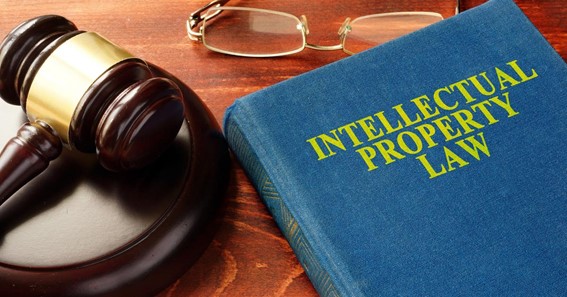Intellectual property can be one of the most valuable things a business maintains. It’s critical to understand the different types of intellectual properties and how they affect your company’s assets.
It’s also vital to secure your intellectual property, which gives legal weight to your actions and can stop competitors from using IP they shouldn’t. Trusted IP management experts such as these can help you understand the best route forward, regardless of the type of intellectual property you claim.
Here’s your pocket guide to the different types of intellectual property for businesses.
Patents
Patents are rights given out by a government and typically cover new inventions. In the United States, patents can cover utility, appearance, or strains of patents. Applicants receive patents from the U.S. Patents and Trademark Office after an examination.
However, patents are only enforceable in one country at a time, so multinational companies may have to apply for documentation in multiple countries.
Patents are generally effective at protecting intellectual property because it’s usually easy to see if something violates the patent. Comparing a suspected offender to the registration almost always clarifies this suspicion.
However, patents are time-limited protection. Utility and plant patents last for twenty years, while appearance-based patents generally last fourteen or fifteen years, with the time varying based on when you file them.
Once a patent ends, anything it covers becomes public, so any other company can make, sell, or use it without further permission. To counter this publicity, businesses often upgrade products and change them enough to attain a new patent, ensuring competitors can’t easily duplicate their latest creations.
Copyrights
Copyrights generally cover words, images, packaging, labeling, and overall products, so commercial enterprises can’t use them. In the United States, created works automatically gain copyright when the author first makes them. Still, registering a work can help prove you created it when you say you did, and that’s always the better option for businesses.
Copyright typically lasts for the creator’s lifetime (or the longest-living creator’s lifetime if there’s more than one), plus an additional seventy years beyond that. Once something is out of copyright, it enters the public domain, and anyone can use it.
Businesses should remember that copyrights can apply to different versions of products. For example, the copyright for a character drawn with or without a shirt may differ, so paying close attention to details when registering copyrights is essential.
Addressing copyright concerns is one of the many things business lawyers can help with where uncertainty rules.
Trademarks
Trademarks are insignias, phrases, symbols, or other identifiers that help represent a product and distinguish it from similar competing products. These symbols may also be known as wordmarks if the trademark is exclusively text. It’s possible for colors and even smells to become trademarks.
Note that owning a trademark does not preclude you from licensing the use of that trademark. For example, Lego does not own Star Wars, but they were able to negotiate a license for Lego Star Wars products, meaning they’re not violating that trademark as long as they follow the licensing terms.
Much like copyrights, you don’t have to register a trademark as long as you’re using it. However, registering gives you many advantages, and it’s usually worth having professionals to help.
Trade secret
A trade secret is an intellectual property that isn’t generally known or obtainable by other businesses. Unlike other types of intellectual property, you don’t need to register a trade secret, although some companies may turn a trade secret into a patent if there’s too much risk of exposure.
The best way to protect trade secrets is by limiting access to them and ensuring only the people who need to know them are aware of them. Some companies go further by only telling any one person a single part of the secret, making it useless unless discussed in a group.
However, companies cannot simply remove knowledge from a former employee’s head, and the non-compete clauses in contracts designed to stop people from exploiting their knowledge of trade secrets may not hold up in court.
Companies facing issues in vulnerable proprietary information may want to find an alternative solution, such as a separate agreement with an employee to prevent the spread of a secret.
Geographical indication
Geographical indications are a lesser-known form of intellectual property that businesses may encounter. Typically, this category matters for products with a specific origin and some qualities or reputation distinctive to that area.
For example, Jamaica’s Blue Mountain coffee blend, widely considered one of the best coffees in the world, comes from a specific growing region known for high-quality coffee beans.
Similarly, Swiss watches are known for their accuracy, but watchmakers can only say it’s Swiss-made if they meet several criteria during production.
Before you go
Intellectual property is often intangible, but it can be significantly more valuable than any of a company’s real property, up to and including choice locations for a headquarters. Some larger businesses are willing to pay a premium when buying other companies to gain access to their IP. The more you protect your IP, the more valuable it might become.
To Know Some Great Stuff Do Visit YesCancel
To Know Some Great Stuff Do Visit ZoConnects
To Know Some Great Stuff Do Visit blockvik







